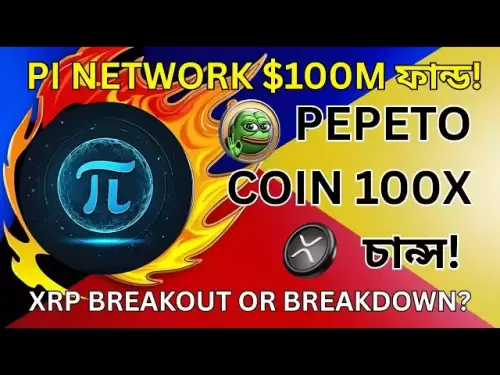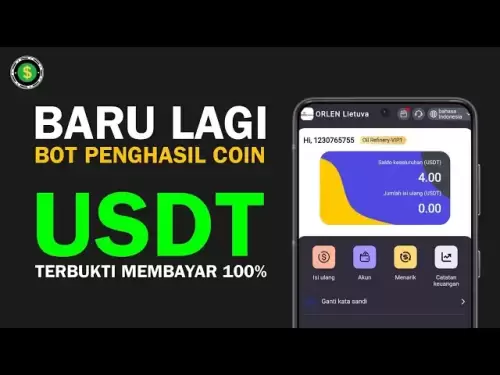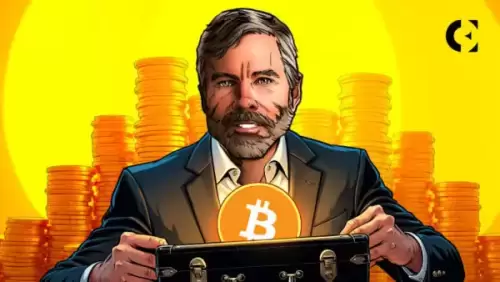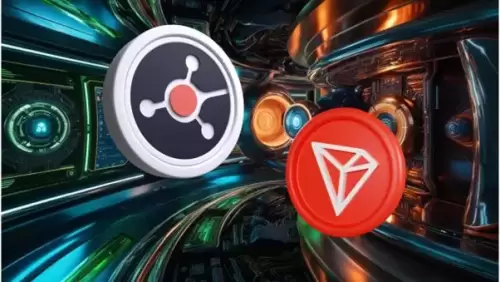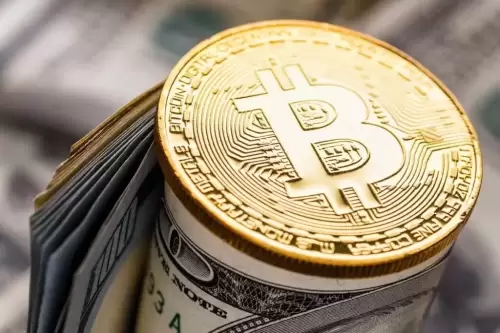 |
|
 |
|
 |
|
 |
|
 |
|
 |
|
 |
|
 |
|
 |
|
 |
|
 |
|
 |
|
 |
|
 |
|
 |
|
Cryptocurrency News Articles
XRP Could Achieve Bitcoin-Like Dominance According to SMQKE's Compilation of Eight Reports
May 18, 2025 at 02:30 am
A crypto researcher and prominent figure in the XRP community, known as SMQKE, has compiled findings from eight distinct reports to support the idea that XRP could achieve a level of significance similar to that of Bitcoin. His analysis follows recent comments from media personality Dave Portnoy, who disclosed that he invested in XRP not due to detailed research, but from a desire to avoid missing out if the asset experiences a dramatic surge in value.

A crypto researcher and prominent figure in the XRP community, recognized online as SMQKE, has assembled findings from eight distinct reports to support the idea that XRP could achieve a level of significance comparable to that of Bitcoin.
This analysis follows recent comments from media personality Dave Portnoy, who disclosed that his investment in XRP was not driven by meticulous research but rather by a desire to avoid missing out if the asset experiences a dramatic surge in value.
To substantiate the possibility of XRP becoming a dominant force in digital finance, SMQKE referenced a range of studies and institutional documents, each outlining XRP’s unique technological and structural attributes.
One of the primary points raised stems from a 2022 report titled First Demonstration Experiment for Energy Trading System EDISON-X using XRP Ledger. This document, written by a collective of researchers from various institutions in Japan and Korea, explains that the XRP Ledger, the blockchain network on which the token operates, uses a Federated Byzantine Agreement (FBA) consensus mechanism.
This contrasts with Bitcoin and Ethereum, both of which rely on Proof-of-Work, requiring energy-intensive mining to validate transactions and secure the network. XRP Ledger, on the other hand, confirms transactions in 3 to 5 seconds with minimal cost and high scalability.
The same report highlighted the XRP Ledger’s environmental advantage, having achieved carbon neutrality in 2020. It also indicated that XRPL supports advanced use cases such as decentralized finance (DeFi) and non-fungible tokens (NFTs), positioning it for long-term utility beyond simple transfers.
At the same time, experts at DC Fintech Week discussed the importance of functional cryptocurrencies in modern finance. Among the topics covered were the integration of cryptocurrencies with the ISO 20022 standard, an international messaging protocol for financial institutions.
In this context, XRP was identified as one of the few digital assets contributing meaningfully to financial innovation.
Furthermore, an analysis by Trade Finance Global described XRP as a “Bitcoin for banks,” contrasting it with BTC’s limited use cases. The report highlighted how Ripple’s infrastructure, which includes the XRP token, has already been adopted by several financial institutions aiming to modernize international money transfers.
Another document, prepared by nocash.ro, examined the implications of the ISO 20022 standard for various cryptocurrencies. Among the 10 tokens assessed, XRP was among the few that appeared prepared for integration with this framework.
This alignment could be crucial for cross-operability with central bank digital currencies (CBDCs), which are also being developed in accordance with the ISO 20022 standard.
In a 2018 letter addressed to the U.S. Federal Reserve, a concerned banking customer, Brenden Sheehan, recommended the adoption of Ripple’s technology.
Highlighting the slow, expensive, and outdated American payment systems, Sheehan pointed out that a recent cross-border payment from China to the U.S. using blockchain technology took 1 minute and 48 seconds to complete, costing only $0.003.
In stark contrast, he noted that a recent cross-border payment through the U.S. Federal Reserve took 3 days and cost $25. This disparity, he argued, highlighted the urgent need for innovation in the U.S. banking system.
Recommending that the Fed integrate with Ripple’s network, Sheehan emphasized the speed, security, and efficiency that the technology could bring to the American financial landscape. He also highlighted Ripple’s integration with SWIFT, the cooperative messaging service for financial institutions.
Sheehan’s recommendation highlighted the critical role of U.S. financial innovation in the global context. He asserted that if the U.S. failed to keep pace with other nations advancing in financial technology, it would ultimately fall behind.
Finally, a study by the Waterford Institute of Technology concluded that Ripple provides notable improvements over both the SWIFT network and Bitcoin’s architecture.
The findings suggested that banks could adopt Ripple’s system to offer more efficient and reliable services to consumers and businesses. This integration would also enable the creation of new financial products and services, ultimately benefitting the broader economy.
The report also recognized that while Ripple’s system may exhibit some centralization due to its reliance on a smaller number of institutions for consensus, this characteristic could also be viewed positively.
In contrast to Bitcoin’s decentralized structure, which faces difficulties in regulatory engagement, Ripple’s framework mirrors some aspects of traditional banking, potentially enhancing regulatory compatibility and mainstream adoption.
This analysis, which combines insights from various financial institutions, government agencies, and research bodies, presents a compelling case for the potential of XRP to rise to a level of significance similar to that of Bitcoin.
However, it’s important to remember that financial markets are inherently unpredictable, and past performance does not guarantee future results.
Any investment decisions should be based on individual financial goals, risk tolerance, and a
Disclaimer:info@kdj.com
The information provided is not trading advice. kdj.com does not assume any responsibility for any investments made based on the information provided in this article. Cryptocurrencies are highly volatile and it is highly recommended that you invest with caution after thorough research!
If you believe that the content used on this website infringes your copyright, please contact us immediately (info@kdj.com) and we will delete it promptly.




















